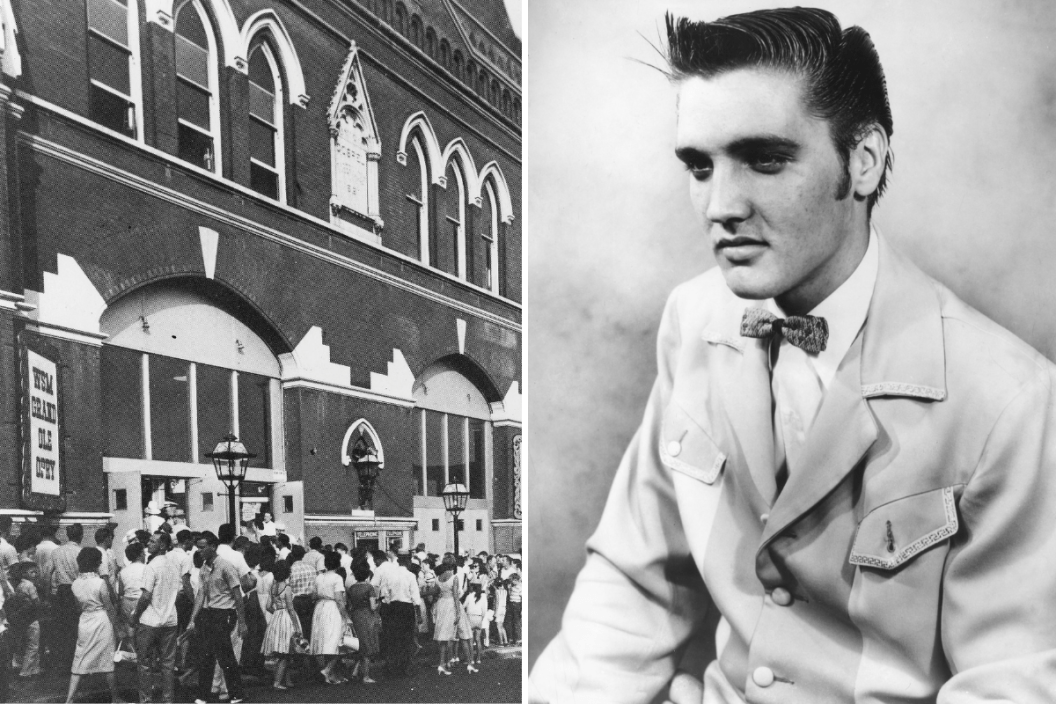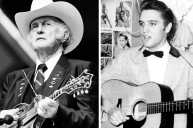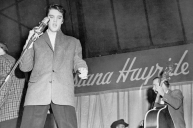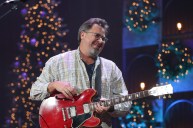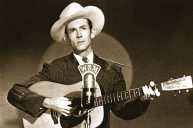Though his legend became inseparable over time from his Country Music Hall of Fame bonafides, Elvis Presley's first encounter with the genre's gatekeepers in Nashville went horrible enough that he never returned to the Grand Ole Opry stage.
Videos by Wide Open Country
On Oct. 2, 1954, 19-year-old Presley performed his first B-side for Sun Records, a revved-up rockabilly rendition of Bill Monroe's "Blue Moon of Kentucky," onstage at the Opry's home from 1943 to 1974, the Ryman Auditorium. Presley reimagining one of the Father of Bluegrass' songs in a venue Monroe made famous connected so poorly with the live audience that Opry talent manager Jim Denny reportedly suggested that Presley stick with his day job as a truck driver.
In her 2007 book Elvis Presley: A Life, Bobbie Ann Mason wrote that Presley, an Opry listener as a child, cried on the way home from Nashville and was so distraught that he accidentally left his suitcase at a gas station.
Competing live radio show the Louisiana Hayride —the same program that welcomed Opry outcast Hank Williams with open arms— stepped up to provide Presley with valuable exposure to a crossover audience. In 1955, the fast-rising King of Rock 'N' Roll topped the country charts with his first career No. 1 hit, "I Forgot to Remember to Forget."
Grasping why a Memphis teenager's debut on country music's most hallowed stage fell flat requires an understanding of the culture surrounding the Opry back then. The Opry brass and its target audience weren't the most open-minded people when it came to infusing country music with modern elements. Ernest Tubb plugging in his electric guitar in the 1940s was a daring move in its time, and drummers on the Opry stage remained taboo until deep into the 1960s. Opry opposition to rock music persisted for a while, as well, with the Sweetheart of the Rodeo-era Byrds having a comparably miserable debut in 1968.
Presley did have one Opry influencer in his corner, with Monroe himself appreciating more than the sizable royalty checks that'd soon hit his mailbox.
"Bill recognized what Elvis Presley was doing with his song, and he was going with it," Monroe bandmate Tom Ewing told NPR in 2000. "And it was very, very admirable, I think, of him to pick up on that, and to tell Elvis that he was for him 100 percent if it would give him a start in his career."
